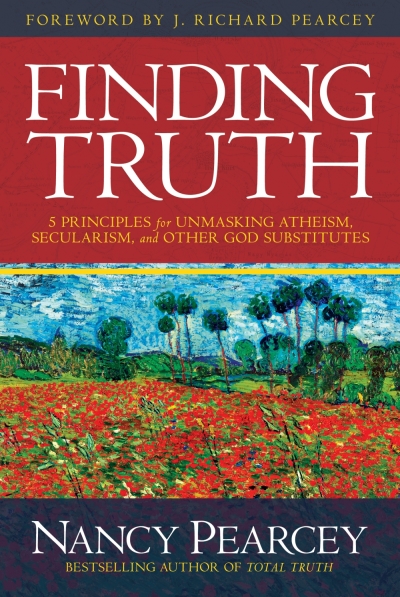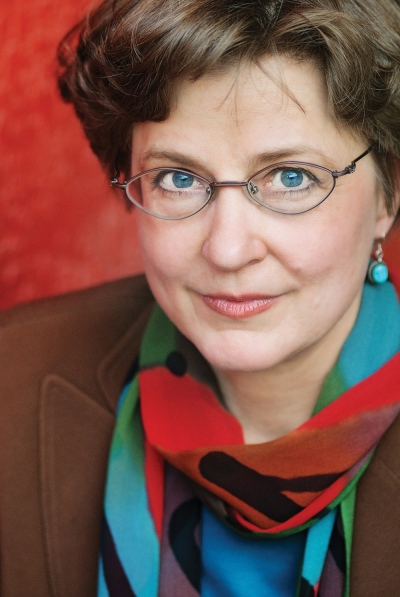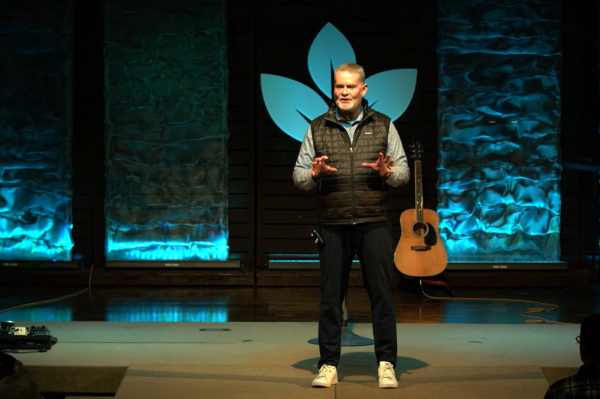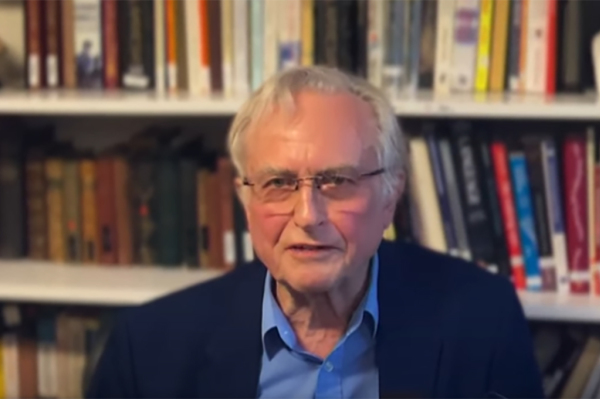Young Christians Spiritually Failing in Real World Because Youth Groups Depend Too Much on Emotional High, Says Nancy Pearcey (CP Interview 1/2)

The main reason people abandon Christianity is unanswered intellectual questions, yet many churches treat faith as a mostly emotional experience, philosopher Nancy Pearcey argued in an interview with The Christian Post. Her new book, Finding Truth: 5 Principles for Unmasking Atheism, Secularism, and Other God Substitutes, provides five practical strategies to help Christians think about issues that challenge their faith.

Pearcey is a best-selling author whose previous works include Total Truth: Liberating Christianity from Its Cultural Captivity, and, coauthored with Charles Colson and Harold Fickett, How Now Shall We Live?
Following the Apostle Paul's example in the first chapter of his letter to the Romans, Finding Truth provides readers with a progression of five principles to help them identify unbiblical ideas and articulate a response to those ideas. These principles are useful for both speaking to non-Christians and for addressing unbiblical ideas that have infiltrated the Church. Each of the core chapters deals with one of the five principles, and there is a study guide in the back of the book.
Those principles are: 1. Identify the idol. 2. Identify the idol's reductionism. 3. Test the idol: Does it contradict what we know about the world? 4. Test the idol: Does it contradict itself? 5. Replace the idol: Make the case for Christianity.
In her CP interview, Pearcey said the book was motivated, in particular, out of a concern for young Christians. Church youth groups are often good at establishing an emotional commitment but are failing young Christians intellectually. Parents and church leaders need to encourage their youth to grapple with difficult questions and help them learn to think through those issues, she argued, or else they will be left unprepared when their views are challenged.
Below is part one of the transcript of that email interview. In part two, Pearcey applies the five principles of Romans 1 to the issue of same-sex marriage.
CP: Why did you want to write this book?

Pearcey: Finding Truth challenges the mindset of "Don't think, just believe," whether in the Church, the classroom, the media, or politics. Studies find that the main reason people abandon their Christian upbringing is unanswered intellectual questions. The researchers were surprised; they expected to hear stories of relationship issues — people saying they'd been hurt or emotionally wounded. But the reason given most often by those who de-convert is that they could not get answers to their doubts and questions.
That is my own story as well. Raised in a Lutheran home, I started asking questions in high school: How can we know that Christianity is true? Is it just an emotional crutch? None of the adults in my life gave any answers. I asked a college professor why he was a Christian, but all he said was, "Works for me." A seminary dean said, "Don't worry. We all have doubts sometimes" — as though I was just going through a psychological phase.
Eventually I concluded that Christianity must not have any substantial answers. I decided to put it aside and embark on a search for truth. After several years as an agnostic, I finally stumbled across L'Abri, the work of Francis and Edith Schaeffer in Switzerland. There for the first time I met people who offered reasons and arguments supporting the truth of Christianity.
My own experience convinces me that it is important to take people's questions seriously. I wrote Finding Truth to help other people who have questions to find solid answers.
CP: Did you have a particular audience in mind?
Pearcey: I am especially concerned about a generation of young people who are not being prepared for the challenges of growing up in a secularized culture.
Recently a mother told me, with tears in her eyes, that her son had lost his faith at a state university. The teen was a psychology major; and ever since Freud, most psychological theories have treated Christianity as a symptom of neurosis, an infantile regression, a projection of an imaginary father figure in the sky. The student came from a loving family and strong church, but he was not prepared for the barrage of critical theories he was learning in the classroom. Within a semester, he had abandoned his Christian upbringing.
This is where Finding Truth can help. It offers a 5-part strategy derived from Romans 1 that empowers people to think critically about secular theories in any subject area. Paul states that there is a body of knowledge giving real-world evidence for God, available to everyone across all cultures and all periods of history — what we call general revelation — which provides a way to test worldviews.
For example, we all have direct awareness of human nature. Because humans are capable of thinking, the first cause that created us must have a mind. Because humans are capable of choosing, the first cause that created us must have a will. As one philosopher sums it up, because a human is a someone and not a something, the source of human life must also be a Someone — not the blind, automatic forces of nature, as we are told by philosophies like naturalism or materialism.
CP: You write about the failures of the Church to help young people seek answers to difficult questions. What grade would you give the American Church on the subject of apologetics?
Pearcey: The good news is that in recent years, apologetics resources have become far more available. The bad news is that many churches continue to ignore those resources, treating Christianity as though it were primarily emotional.
Youth groups rarely encourage young people to grapple with tough questions. Instead the goal seems to be to engineer events that ratchet up emotional commitment. But emotional intensity is not enough to block out questions. If anything, it leads teens to redefine Christianity in purely emotional terms — which leaves them vulnerable when they finally do face their questions.
Finding Truth opens with the story of a presentation I was invited to give on Capitol Hill in Washington, D.C. Afterward a congressional chief of staff stood up and announced to everyone there, "I lost my faith at an Evangelical college." How did it happen? The staffer explained that his professors taught the prevailing theories in their field, but those theories are typically secular and sometimes explicitly anti-Christian. They did little or nothing to offer an informed biblical counter-interpretation. The young man even met with his professor privately, asking, "How do you relate your theological convictions to what you teach in the classroom?" Not one could give an answer.
A 2007 survey of the Coalition of Christian Colleges and Universities found that only about half the faculty said they could give a biblical perspective on the field they teach.
A unique feature of Finding Truth is that it offers a strategy that can be applied in every field, every profession — and in ordinary life too. One of my students wrote, "The method of critique you taught in this book has been incredibly helpful to me, not just in my other classes but also in my life, reading books and watching movies."
CP: Sometimes in our culture people grow up thinking they are Christian just because their parents are Christian and they live in a community of mostly Christians. At Southern Evangelical Seminary's National Apologetics Conference in January, Josh McDowell said Christian parents can help their children develop their own convictions by not answering their questions, but responding to questions with more questions. What do you think of this suggestion?
Pearcey: Most adults do need to learn to ask more questions and listen more. But that should not become a way to avoid doing the careful work of finding answers. When I went to L'Abri as an agnostic, I was impressed by the way the staff used my questions to introduce me to the wider world of ideas. It was exhilarating to discover that Christianity is not limited to a privatized "religious" sphere — that it actually gives superior answers to the fundamental questions that everyone faces.
Finding Truth cites several secular thinkers who admit that Christianity offers answers precisely where their own worldview fails. The late philosopher Richard Rorty was revered as the "philosopher of democracy," yet he admitted that his own worldview did not give a basis for democracy. He was a committed atheist and Darwinist, yet in the Darwinian struggle for existence, the strong prevail while the weak are left behind. So, clearly, evolution is not the source of universal human rights. Instead, Rorty acknowledged, that concept came from the Christian claim "that human beings are made in the image of God." So he simply borrowed the concept of universal rights from Christianity. He dubbed himself a "free-loading" atheist.
No wonder Paul, living in the midst of the powerful Roman empire, proclaimed that he was "not ashamed" of the gospel (Rom. 1:16). Christianity is so appealing and so attractive that adherents of other worldviews keep free-loading the parts they like best.






















